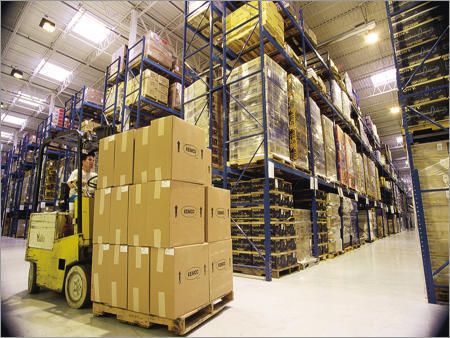
Harnessing the Power of Big Data: Revolutionizing Warehouse Management in the Indian Logistics Industry
Introduction
In the ever-evolving landscape of the Indian logistics industry, the integration of cutting-edge technologies has become imperative for companies aiming to stay competitive. One such transformative force is Big Data, which has emerged as a game-changer in reshaping Warehousing Services in India practices. As the volume of data continues to grow exponentially, harnessing this information holds the key to optimizing operations, improving efficiency, and enhancing overall supply chain performance.
The Rise of Big Data in Indian Logistics
The Logistics services in India has witnessed a significant transformation over the past decade, with the adoption of advanced technologies becoming increasingly prevalent. Big Data, characterized by the processing and analysis of massive datasets, has become a pivotal force in this transformation. With the ability to capture, store, and analyze vast amounts of information in real-time, Big Data provides logistics companies with valuable insights into their operations.
Real-Time Visibility and Inventory Management
One of the primary ways Big Data is reshaping warehouse management is through the provision of real-time visibility. Traditional warehouse management systems often struggled to offer real-time insights into inventory levels, order status, and shipment tracking. However, with the integration of Big Data analytics, companies can now monitor their entire supply chain in real-time.
This real-time visibility enables better decision-making, allowing logistics managers to respond promptly to fluctuations in demand, track the movement of goods accurately, and optimize inventory levels. By minimizing delays and streamlining the order fulfillment process, logistics companies can significantly enhance customer satisfaction and gain a competitive edge in the market.
Predictive Analytics for Demand Forecasting
Accurate demand forecasting is a critical aspect of warehouse management, and Big Data plays a pivotal role in improving the accuracy of predictions. By analyzing historical data, market trends, and external factors, logistics companies can leverage predictive analytics to anticipate future demand patterns more accurately. This enables them to optimize inventory levels, prevent stockouts, and reduce excess inventory holding costs.
Moreover, predictive analytics allows companies to identify potential supply chain disruptions and proactively address issues before they escalate. This proactive approach not only enhances operational efficiency but also minimizes the risk of disruptions that could impact customer satisfaction and overall business performance.
Optimizing Route Planning and Fleet Management
Efficient transportation is a cornerstone of successful logistics operations, and Big Data is instrumental in optimizing route planning and fleet management. By analyzing data on traffic patterns, weather conditions, and historical delivery performance, Logistics solution company in india can identify the most efficient routes for their shipments.
Additionally, Big Data enables predictive maintenance for vehicles, reducing the likelihood of breakdowns and ensuring that the fleet operates at peak efficiency. This not only minimizes operational costs but also enhances overall service reliability.
Enhancing Warehouse Efficiency with IoT Integration
The Internet of Things (IoT) is another technological advancement that, when combined with Big Data, further enhances warehouse management in the Indian logistics industry. IoT devices, such as sensors and RFID tags, can be strategically placed throughout the warehouse to collect real-time data on factors like temperature, humidity, and item location.
This granular level of data enables warehouse managers to optimize storage conditions, track the movement of goods with precision, and identify potential bottlenecks in the workflow. By integrating IoT data with Big Data analytics, logistics companies can make informed decisions to streamline operations, reduce errors, and enhance overall efficiency.
Challenges and Considerations
While the integration of Big Data in warehouse management offers significant benefits, it is not without its challenges. Data security and privacy concerns, the need for skilled professionals to analyze and interpret the data, and the cost of implementing advanced technologies are among the hurdles that logistics companies must navigate.
Addressing these challenges requires a strategic approach, including robust cybersecurity measures, ongoing employee training programs, and a clear return on investment (ROI) analysis to justify the adoption of Big Data solutions.
Conclusion
As the Logistics solution company in india continues to evolve, the adoption of Big Data is proving to be a transformative force in warehouse management. The ability to harness vast amounts of data in real-time empowers logistics companies to make informed decisions, optimize operations, and stay agile in the face of dynamic market conditions.
By leveraging the power of Big Data, Indian logistics firms can not only enhance efficiency and reduce costs but also deliver a superior customer experience. As technology continues to advance, the integration of Big Data will play an increasingly pivotal role in shaping the future of Warehousing Services in India in the dynamic and rapidly growing Indian logistics industry.